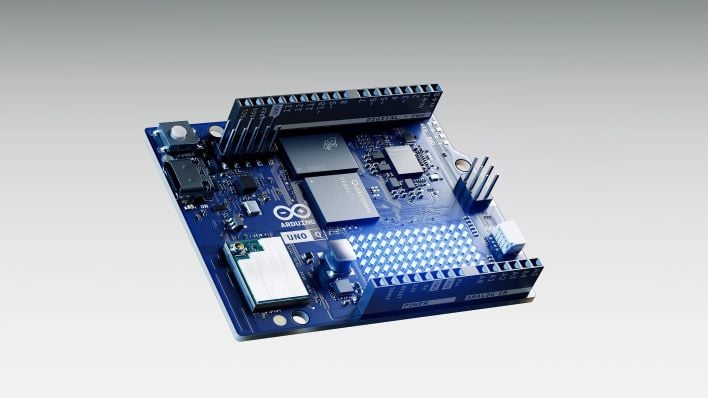Qualcomm Acquires Arduino, Launches UNO Q To Supercharge Edge AI IoT Developers

The first product from this new marriage is the Arduino UNO Q, a next-gen single-board computer that drastically ups the ante on performance. Unlike previous Arduinos, the UNO Q features a dual-brain architecture: it pairs a high-performance, Linux Debian-capable Qualcomm Dragonwing QRB2210 processor with a real-time microcontroller. This hybrid design is meant to bridge the gap between simple, real-time control (like a traditional microcontroller) and complex computing tasks (like running Linux OS and AI models, for example).
In conjunction with this fresh hardware, Arduino is also launching the Arduino App Lab integrated development environment (IDE). This new IDE is designed to unify different coding workflows, such as Real-Time OS, Linux, Python, and AI flows, into a single, simpler interface. Crucially, the App Lab will integrate with the Edge Impulse AI model development platform, which allows developers to build, fine-tune, and deploy AI models for tasks like object recognition and anomaly detection more efficiently.
Qualcomm’s Group General Manager Nakul Duggal emphasized that this move is about democratizing access to advanced computing and AI tools for the global developer community. The idea is that by leveraging Arduino's vast, accessible ecosystem, Qualcomm will gain loyalty among next generation builders and ensure its chips are at the heart of tomorrow's smart devices.

